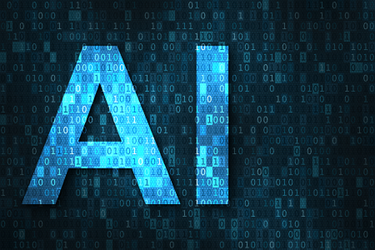5 Quick Wins For AI In Healthcare
By Akash Jha and Poulami Chatterjee

Use of artificial intelligence set to continue explosive growth.
The use of Artificial Intelligence or AI is permeating many aspects of our lives today, with the potential to radically change how people live, work and play. At present, AI appears to be at the brink of explosive adoption, across multiple industries like BFSI, media, healthcare and automobiles. It all comes down to data and the ability to analyze and apply it to specific tasks in a human-like fashion. And the amount of data that is available today is staggering. According to a PwC report, between 2010 and 2015, the amount of stored patient data increased 700 percent. Also, 91 percent of stored patient data is unstructured. Tapping and using all that unstructured data with AI has enormous potential to make patient care more efficient and cost-effective than ever before.
Simply put, AI refers to the broad field of computer science that explores the creation of machines capable of “intelligent” behavior. In other words, AI attempts to mimic human cognition using reasoning and deduction, natural language processing (NLP), learning, perception and planning to achieve a human-like intelligence. As technology progresses, the goal is for computers to achieve social, creative and general human intelligence so they can ultimately carry out tasks in a manner that we humans might consider “smart.”
For example, marketers use AI extensively to follow and analyze our Internet browsing and shopping habits to present the most relevant ads and content to us. In many industries, deep learning techniques have already made chatbots capable of replacing human customer service agents.
As the use of AI in healthcare grows, the hope of big returns has stimulated strong investment. Sixty-three percent of healthcare executives worldwide already actively invest in AI technologies, and seventy four percent say they are planning to do so. While strong security, ethical guidelines and thorough supervision are needed as the field continues to mature, healthcare organizations can look to AI to increase efficiency and deliver cost savings. Following are five key areas where AI is making inroads in healthcare organizations in the short term.
1. Efficient Search
Healthcare organizations are challenged when providers belonging to varied specialties use different electronic health records (EHRs) from different vendors, and patient records contain large amounts of unstructured, text-based data. AI, and specifically Natural Language Processing (NLP), can dramatically reduce the time required to search historical records and data in various formats, while enabling much more focused searches.
2. Faster Coordination
AI chatbots already manage customer service tasks, and can therefore be integrated into patient portals to screen symptoms and efficiently book appointments. In addition, using AI to gather and present relevant information at the right place at the right time can help avoid the need for patients to repeat information, such as symptoms, multiple times throughout the care process. Moreover, using a combination of Optical Character Recognition (OCR) and Machine Learning, systems can help in faster processing of a new or referral patient by auto-completing his or her data from an insurance copy.
3. Increased Patient Experience
Improving the patient experience and increasing engagement are top priorities for healthcare organizations. By applying existing AI technology, such as chatbots and automated appointments, organizations can reduce turnaround times. With more access to patient data from wearables and smartphone apps, focused notifications about sleep time, diet and activity levels can help improve adherence to health management protocols, build trust and improve overall patient heath. Use of imaging analytics with Machine Learning can help patients identify medications whose labels have worn off, improving adherence while reducing errors.
4. Proactively manage health
AI, specifically predictive analytics, can be used for deep analysis of patient behavioral patterns, vital signs and other factors to segment target populations for proactive management. Using advanced risk scoring, certain patients can be identified for priority care or customized care plans based on analysis of the latest available research. For ongoing care management, AI chatbots can help reduce miscommunication and increase consistence adherence to care protocols, such as scheduled labs and preventive screenings. AI can also help manage medications, warnings and problems from hand-written clinical notes using OCR, NLP and Machine Learning.
5. Reduced Costs
Successful long-term population health improvement, such as diabetes management programs, can deliver reduced treatment costs. In addition, AI is already in use for advanced imaging analytics and can process images quickly, accurately and at lower cost. By applying predictive analytics, for example for tumor analysis and imaging nodule, critical illnesses can be identified at an early stage. Additionally, retinal scans and Machine Learning can help predict Diabetic retinopathy. On the utilization side, regression-based AI systems can identify under- and over-utilization of costly resources, such as MRI machines and CT scanners, to optimize utilization patterns and reduce costs. The use of robots for supply and pharmaceutical management, and even surgery, is growing quickly as well.
Financial Impact
The use of these five AI concepts in healthcare applications is already well underway, bringing with them significant financial impact. As healthcare organizations plan for the next three to five years and beyond, it’s critical to consider how early adoption of these advanced technologies can help improve patient care outcomes, increase efficiency and reduce costs.
About The Authors
Akash Jha is a healthcare consultant for CitiusTech. Poulami Chatterjee is a healthcare business analyst for CitiusTech.
